Even nearly 20 years later, the Monday Night War is still remembered as one of the most exciting eras in sports entertainment. WCW challenged the then-WWF's dominance of the industry in one of the most vicious, spiteful, and expensive games of one-upmanship ever played.
The internet became more of a factor in the war as insiders in the industry could post spoilers about contracts and storyline plans with relative anonymity. Fans would also debate the merits and flaws of each brand. Sometimes the fans became quite polarized, but most fans actually watched both promotions with at least a somewhat equal amount of interest.
But, as history will tell us, WCW ultimately lost not only its bid to be the biggest promotion in the world but its very existence. Bought out by its rival, WCW fans can only speculate wistfully about what might have been.
Debate rages on to this day as to what exactly brought down WCW. Here are ten things that certainly exacerbated that downfall, and why WCW thought they would be more helpful than they were.
#1 Letting talent have too much creative control
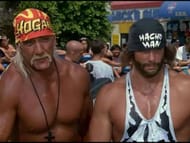
In order to lure away WWE wrestling stars to WCW, the executives had to make some pretty compelling contractual offers. One of the main tenants of these contracts was a greatly reduced road schedule--often half of their previous workload--and creative control of their characters.
This meant that Hulk Hogan, for example, could not be booked to lose a match unless he wanted to. Not such a big deal for a massive star such as himself, but this same clause belonged to many of the WCW's veteran stars. Imagine the conflicts if two wrestlers who both only lose if they want to have to face each other. Sometimes they were professional about it–Randy Savage famously put over DDP clean when the latter was trying to go from midcarder to main event star–but usually there were conflicts, which led to hackneyed booking that left fans thoroughly unsatisfied.
#2 Tony Schiavone
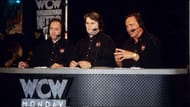
Tony Schiavone was not a terrible announcer, far from it in fact. His matter of fact delivery on match calling drew comparisons to men like Bob Caudle, who treated pro wrestling as more of a sport and struggled for impartiality.
Unfortunately, WCW had branded Nitro as the 'young, rebellious' show. The nWo, despite being made up of mostly established stars, was portrayed as a new generation breaking down the old order.
In this mix-up, an old school announcer like Tony seemed out of place. Also, Schiavone was unused to calling matches live, with a producer speaking to him through his headset while he was trying to announce. This often led to late delivery or inaccurate commentary on the matches. He once famously called four different moves on one episode of Nitro a 'side walk slam.'
Tony would have been a great 'prestige' announcer to come in for PPVs and special events, but he just wasn't a good fit for the announce booth of Nitro. Compared to the bombastic and excited team of JR and the King, Schiavone came across as your older, uncool uncle.
#3 Last-minute booking
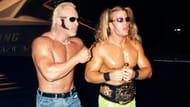
One of the problems which plagued WCW during its heyday called to mind an old adage. "Too many cooks spoil the soup."
There were so many different voices backstage making booking decisions that the mid and low card wrestlers were often lost in the shuffle. You had wrestlers making up their own improvisations on the fly and using their creative control clauses to enforce the changes. Head booker Kevin Sullivan often clashed with men like Eric Bischoff, resulting in confusing or dropped storylines and angles.
The West Hollywood Blondes were a good example of their hackneyed, last minute booking. Lenny Lane and Lodi were two journeymen wrestlers with a lot of potential and WCW wanted to repackage them. They began a pseudo-homosexual gimmick that went over well with the fans but that the Turner Network hated. So they were cycled out of the gimmick with no real explanation. Lodi tells the story that the duo were in the tunnel, still wearing street clothes, as their music played and the creative team struggled with what to call them. They ended up being Lane and Rave, Standards and Practices as a jab at the TNT executive office that had ended the original team.
These types of poorly planned moments were part of what led to WCW's downfall.
#4 Mishandling world-class talent
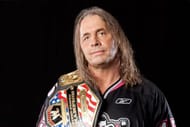
WCW took great pains to collect some of the biggest stars in wrestling. Hulk Hogan, Roddy Piper, Macho Man Randy Savage, Bret Hart and others were all on the roster at the same time.
However, egos and other conflicts led to a gross misuse of these legendary men. For example, Bischoff didn't think Hogan vs. Bret Hart would be a draw (and neither did Hogan according to some rumors) so the two never had a definitive feud. Sting and Lex Luger, once the biggest stars of WCW, were relegated to the tag team division until Sting started his 'crow' gimmick. And Scott Hall and Kevin Nash–certified main eventers in WWE–were just glorified sidekicks to Hulk Hogan in the nWo.
Not using the world caliber talent at their disposal was one of the mistakes that led WCW to ruin.
#5 Revenge booking

Mike "Gladiator" Awesome was known as one of the most powerful, most agile big men in the sport. His powerbombs shook the ring, and he was also willing and able to go extreme and hardcore in his matches.
In short, when he joined WCW fans expected him to demolish the competition on a Goldberg-esque quest to become world champion. Instead, he was turned into the Fat Chick Thriller and That 70s Guy. The main reason he was given these gimmicks was as a punishment for being related to Hulk Hogan, who was on the outs with the company at the time.
It was not limited to Hogan's family. Wrestler Chris Benoit was made to lose matches to men like the Giant in mere seconds because of his real-life affair with booker Kevin Sullivan's wife. Ernest "the Cat" Miller was put into a match where he was brutalized by Scott Norton because WCW executives thought the Cat had a big ego.
When booking a wrestling show, the storyline and entertainment value should be most important, not political backstabbing. This is part of why WCW went to waste.
#6 Non-wrestlers appearing on WCW programming
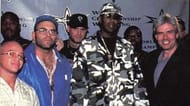
In order to expand WCW's audience beyond dedicated wrestling fans, Eric Bischoff reached out to entertainment industry heavyweights in hope of garnering a bigger audience.
Sometimes, this worked out well. Karl Malone and Jay Leno proved to be surprisingly entertaining with their in-ring work and match build up.
Other times, it backfired badly. WCW once booked middling country music star Travis Tritt to put on a concert at a PPV. The PPV ended up being one of the lowest rated in the company's history. Bischoff also famously paid rapper Master P millions of dollars for a handful of non-wrestling appearances. The whole idea imploded when the WCW audience rejected Master P's stable of rap/wrestlers and cheered for their heel opponents the West Texas Rednecks instead.
By wasting money and television time on people wrestling fans did not really care about, WCW missed a lot of opportunities.
#7 Being cruel and unfair to younger talent

With major stars like Hulk Hogan, Macho Man, and Sting demanding his attention and time, perhaps Eric Bischoff could be forgiven for losing mid card up and coming stars like Eddie Guerrero in the shuffle.
However, nothing excuses the way Eddie was treated by Bischoff when the future Latino Heat confronted the latter about his lack of a good storyline in the company. Eric Bischoff famously threw coffee on Guerrero and ordered him to leave the office.
The incident was turned into an angle, but not until many months after and Eddie had been demoted to being 'just a cruiserweight.' Eddie is just one of the men whom WCW disrespected during its heyday, which might explain why men like Dean Malenko and Chris Jericho left the company.
#8 Failing to promote the Cruiserweight division
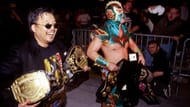
Cruiserweight matches in WCW were the most dynamic and exciting contests of the show. Whereas the upper card and main event were mostly older, established stars with deteriorated physical health, the cruiserweights were young, athletic, and hungry for success.
All of these elements made the cruiserweight division popular with the fans. However, as the nWo angle wore on and on, the division was seen less and less. Given the style in NXT and ROH is almost a carbon copy of the WCW cruiserweight division of yesteryear, we'd say that WCW missed out on a great opportunity.
#9 Spending too much money on publicity stunts

Master P, Chucky from Child's Play, David Arquette, even third-tier cable show stars like Arliss all made their way onto WCW programming.
One of the reasons WCW went under was because it was losing money. Wasting it on non-wrestling stars for a desperate shot at ratings victory wound up being a terrible mistake.
#10 Refusing to let the NWO go
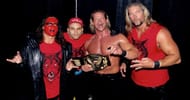
The nWo was one of the most innovative and exciting stables and storylines in wrestling history. It changed the landscape of the industry and led to WCW briefly reigning as the top pro wrestling company in the world.
However, it also overstayed its welcome by many years. The nWo should have really ended in 1997 when Sting finally faced Hogan for the world title. But that did not happen. The angle dragged on and on, with the nWo undergoing many mutations, including the babyface Wolfpack variant.
If WCW had tried something new and creative, they may have staved off their own destruction. Instead, they just kept going to the well too often, and it came up dry.
What do you think brought about WCW's collapse? Please comment below and thanks for reading!
